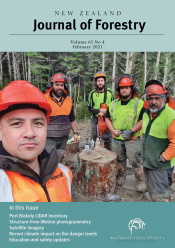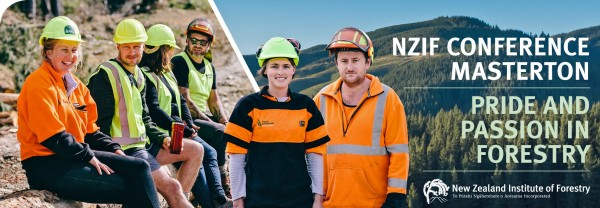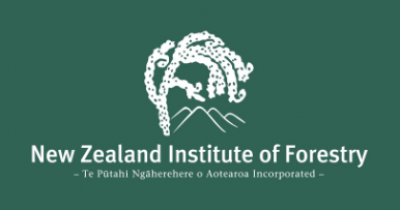8th March 2021 Newsletter
PRESIDENTS COLUMN

This week I would like to ask members to provide me with some help. I have been asked many times (including by media) how we will manage to plant the proposed native area the CCC has suggested. Not only where do we find the land but how easy is it to establish native, do we have skills, what is the cost, would it be native as public see on their tramps or only 1 or 2 species. Frankly I just don’t know. I have heard cost of planting range from $5000 to $100,000 per hectare, not including land. I have been told the knowledge on how to plant native is all retired. I have been told P.rad nursery crops are a must. I have been told all we need to do is fence and keep the pests out. I have been told we need more native nurseries and they are hard to develop. So I ask you the members for help. I want to hear from any of you who really know how we can plant 15,000 hectares of native a year, what methodologies will give the best result, what is the cost in reality. Currently I am telling media I am not an expert on this and I will come back to them. As the professional body I need you to help me answer their questions. So please send me an email or send something into ‘members voice’. We need to lead this establishment, but first we need to be trained.
The other major question I am being asked is are we creating an environmental and social disaster with all the new planting going into farmland. Member Weir sent me an article from the Mayor of Waitaki. Quotes from this article include:
“One of the major problems facing our community right now is the unintended consequences resulting from carbon credit farming. The government has incentivised people and companies to carpet-bomb landscapes with pine trees which are strangling indigenous vegetation, destroying habitats and generally wrecking the environment, all in the name of saving the… environment.”
“Then there is the social cost. With no ongoing farm management, there is no need for people to live and work on the land; there are no services required from agricultural companies; and there is little to not maintenance carried out. That affects rural communities – those farms are no longer homes to kids who would have attended the local school, there are no customers for the local shop, pub, or service station. Where this happens to too many farms in a community, then the community dies.”
While we may agree or not with these comments we need to recognise these comments are being made and are being made more and more often and all over the country. Will this be our ‘dirty streams’ issue. As a sector we need to have a clear response to these comments and evidence to back it up. As individual professionals what are your views? Are some of these comments fair enough, how should NZIF respond, should we be proactive on our response or reactive. NZIF needs a clear position in this.
This brings me to the ultimate question. As members what do you want NZIF’s role to be in these public debates. Should we be front and centre or waiting for questions to come to us? If front and centre, what issues do we want to discuss? How does council get clarity on your views, or do you trust council to represent you? NZIF exists to represent the forestry profession (6.5 of the rules) and act as an independent advocate for forestry (6.6 of the rules). What does this mean for you. You are the members and we are here to serve you. Tell us what is important to you.
Thanks
James
MEMBERS VOICE
Climate Change Commission
Various forestry people have criticised the Climate Change Commission for suggesting we plant 300,000 ha of indigenous forests between now and 2035. Since we could achieve the same carbon storage with more confidence and at less cost with radiata pine, why are they making this suggestion? When I put that question to them, the answer I got was “We don’t need to plant lots of radiata. We can meet our targets with 380,000 ha of radiata and the rest in indigenous. Since the numbers work and the cost is bearable, that’s the target we have set.” Fair enough, they are trying to find a route forward that will be acceptable to both the public, and any Governments of the day. Against that political reality, technical arguments are irrelevant.
Of course they know that radiata is cheaper and more reliable for carbon storage. They also know there is a risk that indigenous planting may fall sort, or fail to survive. So they have not rejected the ‘radiata nurse crop’ scenario. Rather think of it as being in their back pocket as a contingency. If the indigenous plantings do fall short, or if industry sectors do not cut their emissions at source as required, there will be more public and political demand for a fast forest alternative. I really hope everyone else pulls their weight, and we don’t need it.
Howard Moore
Wellington
____________________________________________________________________________________________
INSTITUTE UPDATE
Registration Board Member

Andrew has been involved in New Zealand forestry since 1962. He is a Registered Forester and an NZIF Fellow. He served on the NZIF Council as a Councillor (2003-04), Vice President (2004-08) and President (2008-14). He was elected as a registered member representative to the Board in 2016. He was part of the small NZIF team that pursued (for over 5 years) and eventually succeeded in obtaining an exemption under the Real Estate Agents Act for Registered Members of NZIF. He has chaired the NZIF Foundation since 2011.
The first half of his career was with the NZ Forest Service in general forestry and research. He was very involved in the corporatisation and then privatisation of the former State forests, along with Treaty of Waitangi issues and settlements involving forests and forest land in the 1980s and 90s.
Andrew has received a number of awards, including the NZIF Thomas Kirk Award in 2014, a Commonwealth Forestry Association Award of Excellence in 2015 and was appointed an Officer of the New Zealand Order of Merit (ONZM) for services to forestry in the 2016 New Year’s Honours.
Andrew strongly believes that registration is a way for a forestry professional to demonstrate they aspire to high professional standards. It follows the President Kennedy quote of “ask not what registration can do for you, ask what registration says about you as a professional”. Andrew is concerned that too many NZIF members still think of registration of interest only to consultants, rather than as a professional standard all should aspire to achieve.
Andrew is the Chair of the NZIF Forest Policy
____________________________________________________________________________________________
JOURNAL OF FORESTRY
Latest Journal of Forestry is now on the Website read more

______________________________________________________________________________________________
FORESTRY EVENTS
Log Export Market Update from Chris Rayes
2020 was an interesting year for log exports with the NZ industry shut down for a month in the Covid lockdown, the ongoing surge of spruce from Europe, and a ban on log imports into China from Australia. 2021 has started with firm log markets in China so what was driving falling inventories and strong demand in China, and will this continue for 2021?
What is likely to develop in Korea and India? What are the impacts on these two markets of the China / Australia trade war?
What is going on in the freight markets? Have the changes in fuel regulations had any serious effect on freight rates. Why are rates increasing so rapidly now?
Chris Rayes, Marketing Director for Rayonier Matariki Forests has, once again kindly agreed to present his views on the log export markets of China, Korea and India, and to take us through current and future developments.
This meeting is generously supported by Arotahi Agribusiness for which ASIF is very grateful.
Date: 5.30pm, Thursday 18 March 2021
Venue: Rayonier Matariki Forests, Level 5, 32-34 Mahuhu Crescent, Auckland
RSVP: Please RSVP to natalie.keller@arotahiagri.co.nz by Tuesday 9 March
____________________________________________________________________________________________
Overseas Investment Office Presentation
Save the date........
Wednesday 21 April 2021, Hawkes Bay
Venue: East Pier, Ahuriri, Napier
Time: 5.30pm
Members of the Overseas Investment Office will provide an update on the overseas investment regime and how it relates to investment in forestry.
Sponsorship: Venue hire, sponsored by - FMNZ Ltd, Refreshments prior to meeting sponsored by - Colliers HB
____________________________________________________________________________________________
NZIF 2021 Conference

27th to 29th June 2021
Copthorne Hotel & Resort Solway Park
High Street
Masterton
We are excited to be presenting a varied and inspiring lineup for our next conference to be held in Masterton in the mighty Wairarapa. We all know how passionate our sector work force is about what we do, and we are seeking to showcase some of this pride with our lineup of speakers and CPD sessions.
NZIF Administrator
Email: NZIF Office
Mobile: +64 22 653 3750
NZIF Registration Board
Email: Registrations
Mobile: +64 27 463 1118
Complaints
Email: Complaints
Appeals
Email: Appeals
© All rights reserved. No part of this site may be reproduced, adapted, or distributed without prior written permission
We are a forum to exchange ideas, opinions and information about forestry.
We encourage and help our members attain and maintain the highest standards of their profession.




